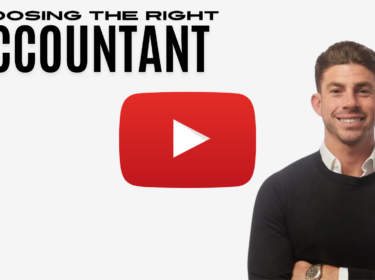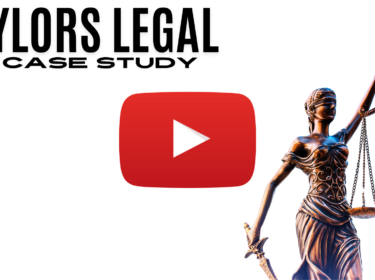What Is Inheritance Tax?
Safeguarding your loved ones against paying too much inheritance tax
If your estate is worth more than £325,000 when you die, your heirs will have to pay inheritance tax on everything over that amount - but they will pay nothing if your estate totals less than that.
Your estate includes your property, savings and any other assets you pass on after debts and funeral expenses have been paid, and the tax rate is 40%.
In this video, Mitch Hahn explains how you can reduce your inheritance tax bill. Watch it now to find out how to benefit your family right now.
Hi, I’m Mitch Hahn, Partner at Nordens Chartered Accountants.
Hi, I’m Mitch Hahn, partner of Nordens Chartered Accountants. Today I am going to deliver you a two minute video on “What is Inheritance Tax?”
If your estate is worth more than £325,000 when you die, your heirs will have to pay inheritance tax on everything over that amount. But they will pay nothing if your estate totals less than that.
Your estate includes your property, savings and any other assets you pass on after debts and funeral expenses have been paid, and the tax rate is 40%.
But…
If your estate is entirely inherited by your spouse or civil partner they don’t have to pay ANY inheritance tax.
Anything up to the £325,000 is called the Nil Rate Band and the figure is attached to estate of the person who dies rather than to the people who inherit.
The Nil Rate Band can be passed on to a surviving spouse or civil partner and they can add it to their own Nil Rate Band, meaning that when they die they can leave an estate worth £650,000 that’s free of inheritance tax.
So, what happens if you give away money and property while you’re still alive?
You can make gifts of up to £3,000 in any tax year without worrying about inheritance tax AND you can give far more tax-free as long as you live for seven years after you have made the gift. But if you die within seven years of making it, HMRC will treat it as part of your estate.
So how much tax will be due?
Inheritance tax is due only on anything above the £325,000 threshold. It’s normally 40% but it’s cut to 36% if you give a tenth of your estate to charity.
Lastly, there is something else that is worth knowing. From 2017, there is an extra allowance covering the value of your main home which started at £100,000 but will rise to £175,000 per person by 2020.
Combined with the nil rate band, it means an individual will be able to leave £500,000 and a couple up to a million, without their estate being subject to Inheritance tax at all.
I hope this brief overview has been helpful. Obviously, Inheritance Tax is bespoke to your own personal situation, so to discuss this further, please do get in touch.
Continue watching:
-
What Is Inheritance Tax?
19 August 2019 -

How we helped Chucky Venn succeed
16 July 2024 -

TOMS Shoes – a MASTERCLASS on purpose led branding
16 July 2024 -

What are the differences between being a Shareholder and a Director?
4 July 2024 -

Is multitasking having a negative impact on your business?
4 July 2024 -

Is your accountant the right person for your business?
4 July 2024 -

Brewdog: A Case Study
2 July 2024 -

How we helped Taylors Legal expand at an unprecedented pace
2 July 2024 -

We helped turn Jamie O’Hara’s business dreams into reali...
2 July 2024 -

Nordens: Not The Ordinary
24 April 2024














